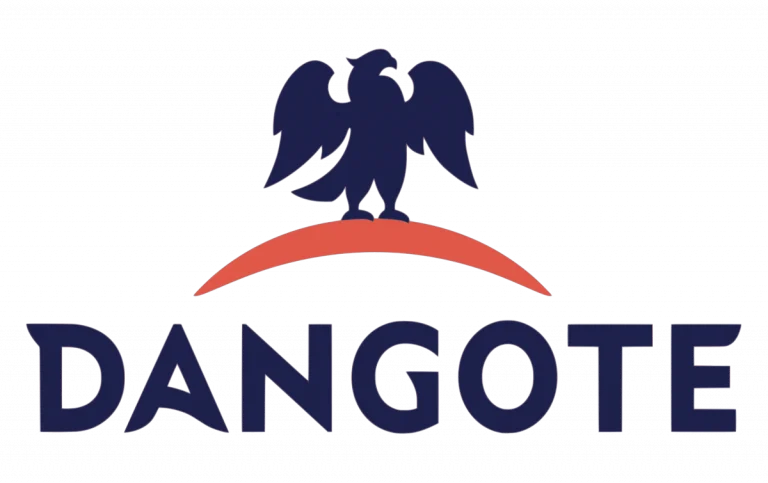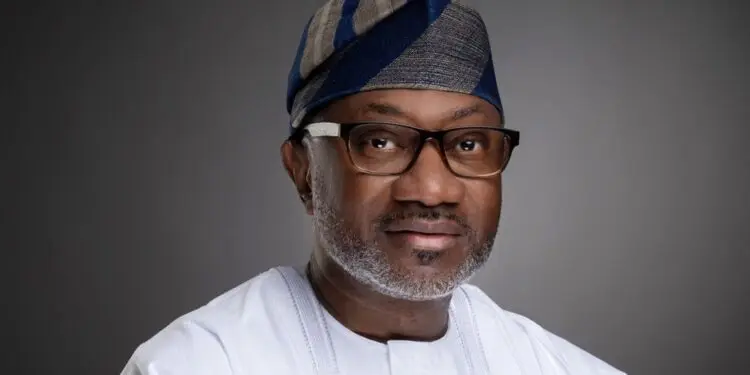Business
Inflation Pushing Truckers Out Of Business, Group Laments

As the inflation rate bites harder, truckers have said that about half of their members are leaving the job for other businesses.
In an exclusive chat with The PUNCH in Lagos on Wednesday, former Dry Cargo Chairman of the Nigerian Association of Road Transport Owners, Abdullahi Inuwa, said that the sector was riddled with a lot of challenges.
Inuwa fingered drop in cargoes, high cost of truck maintenance and diesel as reasons for the dwindling fortunes of the sector.
“From my own side, the work is not friendly because of drop in activities. This is coupled with the high cost of maintaining trucks, diesel and other activities. Some people who have, for instance, 10 trucks may be managing to maintain five now to have money for other businesses. I have to park 0my trucks for now. I am currently not doing port operations now. So, about 50 per cent truckers have parked their trucks pending when things will improve. Some are looking for other ways of survival. I started seeing this development in November 2021. You are aware that earlier this year, there was scarcity of empty containers in Europe, coupled with lack of access to forex.”
He also accused the Federal Government of focusing more on generating revenue than encouraging trade.
“Our government’s approach to tariffs, especially the Customs, is not encouraging. They don’t think of encouraging the industry because they are always increasing tariffs and targeting gaining more revenue.”
Inuwa said that the situation is worse for truckers who were not resident in Lagos because they had to pay for parking for the number of days they would stay, with little or no cargo to go back with.
READ ALSO: Inflation Hits 16.82%, Exceeds IMF’s 2022 Projection
Corroborating Inuwa’s submission, the Head of Operation, NARTO, Mr Stephen Okafor, said that truckers were not breaking even, noting that other sectors had increased their rates except the trucking sector.
According to him, “I know a whole lot of people have actually left the business. People are actually going out of business and if it continues like that, a whole lot of people will still leave.”
Also speaking, the President of the Council of Maritime Truck Unions and Associations, Mr Adeyinka Arowoyewun, said, “The level of importation has drastically reduced due to so many factors which have to do with the exchange rate, war in Ukraine and Russia, and the policies of government vis a vis increase in tariff. I agree that importation has reduced and a lot of truckers have actually abandoned that business.”
Business
NNPCL Announces Restoration Of Escravos-Lagos Pipeline

The Nigerian National Petroleum Company Limited (NNPCL) has announced the complete restoration of the Escravos-Lagos Pipeline System (ELPS) in Warri, Delta State, following the recent explosion on the asset.
The chief corporate communications officer (CCCO) of the nation’s oil company, Andy Odeh, in a statement, said that the pipeline is fully operational, reiterating the company’s resilience and commitment to energy security.
“NNPC Limited is pleased to announce the successful restoration of the Escravos-Lagos Pipeline System (ELPS) in Warri, Delta State.
READ ALSO:Fuel Price Cut: NNPCL GCEO Ojulari Reveals Biggest Beneficiaries
“Following the unexpected explosion on December 10, 2025, we immediately activated our emergency response, deployed coordinated containment measures, and worked tirelessly with multidisciplinary teams to ensure the damaged section was repaired, pressure-tested, and safely recommissioned.
“Today, the pipeline is fully operational, reaffirming our resilience and commitment to energy security. This achievement was made possible through the unwavering support of our host communities, the guidance of regulators, the vigilance of security agencies, and the dedication of our partners and staff.
“Together, we turned a challenging moment into a success story, restoring operations in record time while upholding the highest standards of safety and environmental stewardship.
“As we move forward, NNPC Limited remains steadfast in its pledge to protect our environment, safeguard our communities, and maintain the integrity and reliability of our assets. Thank you for your trust as we continue to power progress for Nigeria and beyond,” the statement read.
Business
Dangote Unveils 10-day Credit Facility For Petrol Station Owners

The Dangote Group has announced a 10-day credit facility backed by a bank guarantee for petrol station owners and dealers, alongside free direct delivery and other incentives, as part of a new supply arrangement.
The company disclosed this in a statement posted on its official X handle on Tuesday, inviting petrol station operators across the country to register to benefit from the offer.
According to the statement, participating dealers will enjoy “a 10-day credit facility backed by a bank guarantee,” with a minimum order requirement of 5,000 litres.
“Our free direct delivery service will commence soon,” the group said, adding that the offer is open to “all petrol station owners and dealers.”
READ ALSO:Dangote Sugar Announces South New CEO
The Dangote Group further called on operators to register their stations to access the supply arrangement.
“Register your petrol stations today to benefit from our competitive gantry price,” the statement read.
The company also disclosed that petrol supplied under the arrangement will be sold at a gantry price of ₦699 per litre.
For enquiries, the group provided the following contact numbers: 0802-347-0470, 0809-324-7070, 0809-324-7071 and 0203.
READ ALSO:Dangote Refinery Dispute: PENGASSAN Suspends Strike After FG Intervention
The announcement follows a recent petrol price adjustment by the Dangote Petroleum Refinery.
The PUNCH earlier reported that the refinery reduced its ex-depot petrol price from ₦828 to ₦699 per litre, representing a ₦129 cut or a 15.58 per cent reduction.
An official of the refinery, who spoke to PUNCH Online on condition of anonymity, confirmed the adjustment, saying, “The refinery has reduced petrol gantry price to ₦699 per litre.”
The new price reportedly took effect on December 11, 2025, marking the 20th petrol price adjustment announced by the refinery this year.
Business
JUST IN: Otedola Sells Shares In Geregu Power For N1trn

Billionaire businessman, Femi Otedola, has sold his majority stake in Geregu Power Plc for N1.088 trillion in a deal financed by a consortium of banks led by Zenith Bank Plc.
The Nigerian Exchange, NGX, made this announcement on Monday.
Otedola’s Amperion Power Distribution Company Ltd reportedly held nearly 80 percent of the power generating company.
READ ALSO:N200b Agric Credit Dispute: Appeal Court Slams NAIC, Upholds First Bank Victory
With this new development, Otedola, Chairman of First Holdco Ltd, parent company of First Bank of Nigeria Plc, will reportedly now concentrate on expanding his interest in the Nigerian banking sector, although he still retains some shares in Geregu.
Otedola is said to currently own 17.01 percent of First Bank — its single largest shareholder since the bank was established in 1894.

 News5 days ago
News5 days agoPHOTOS: SGF George Akume Weds Ooni’s Ex-Queen

 News3 days ago
News3 days agoEx-Edo Gov Obaseki Reacts As His Cousin Is Beaten, Stripped

 News2 days ago
News2 days agoBREAKING: Anthony Joshua Involved In Road Accident

 Politics2 days ago
Politics2 days agoWike Speaks On Defecting To APC

 Politics2 days ago
Politics2 days agoJUST IN: INEC Excludes PDP From Ekiti Governorship Election

 Politics2 days ago
Politics2 days agoYou’re Not 001 – Wike Rubbishes Claims Of Fubara Being APC Leader In Rivers

 Metro3 days ago
Metro3 days agoObaseki Beaten, Stripped In Edo

 News2 days ago
News2 days agoNAF Neutralizes Bandits At Turba Hill, Kachalla Dogo Sule Camps

 Entertainment5 days ago
Entertainment5 days agoI’ve Stopped Impregnating Women Anyhow – 2Baba

 Politics2 days ago
Politics2 days agoGo To Hell, You Didn’t Pay My School Fees – Wike Hits Seyi Makinde
























